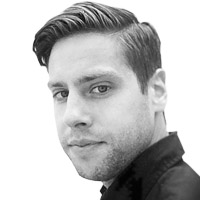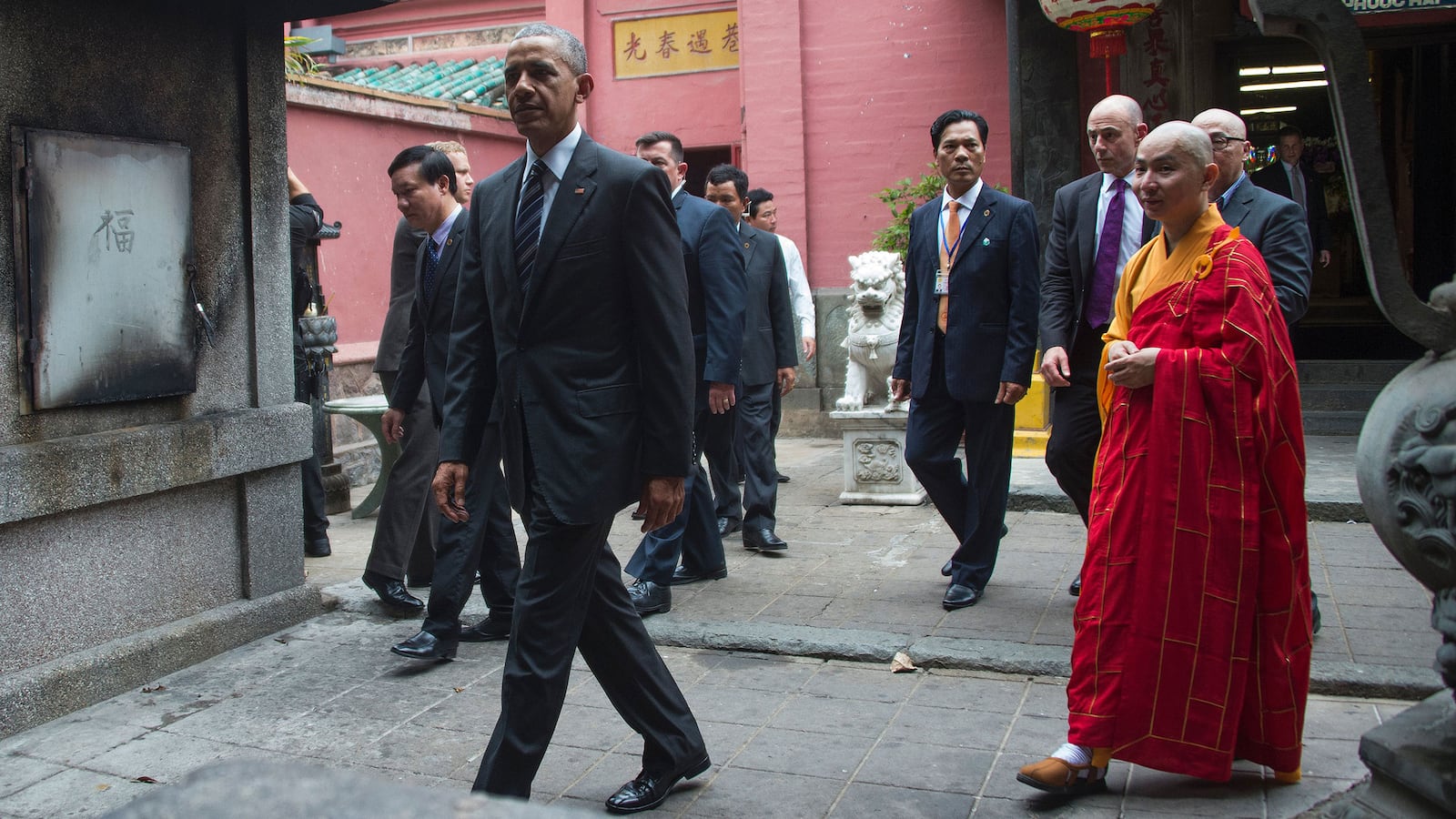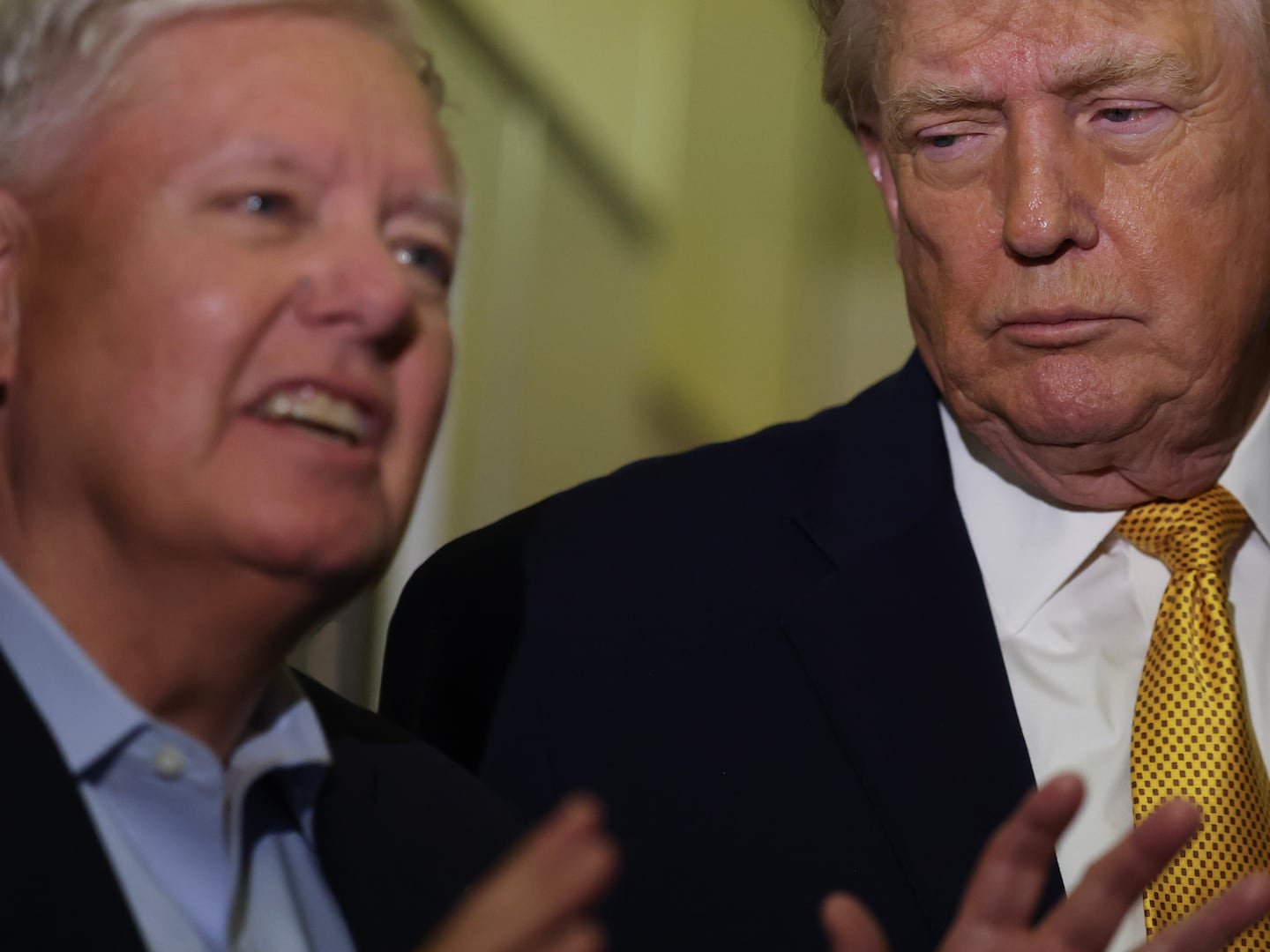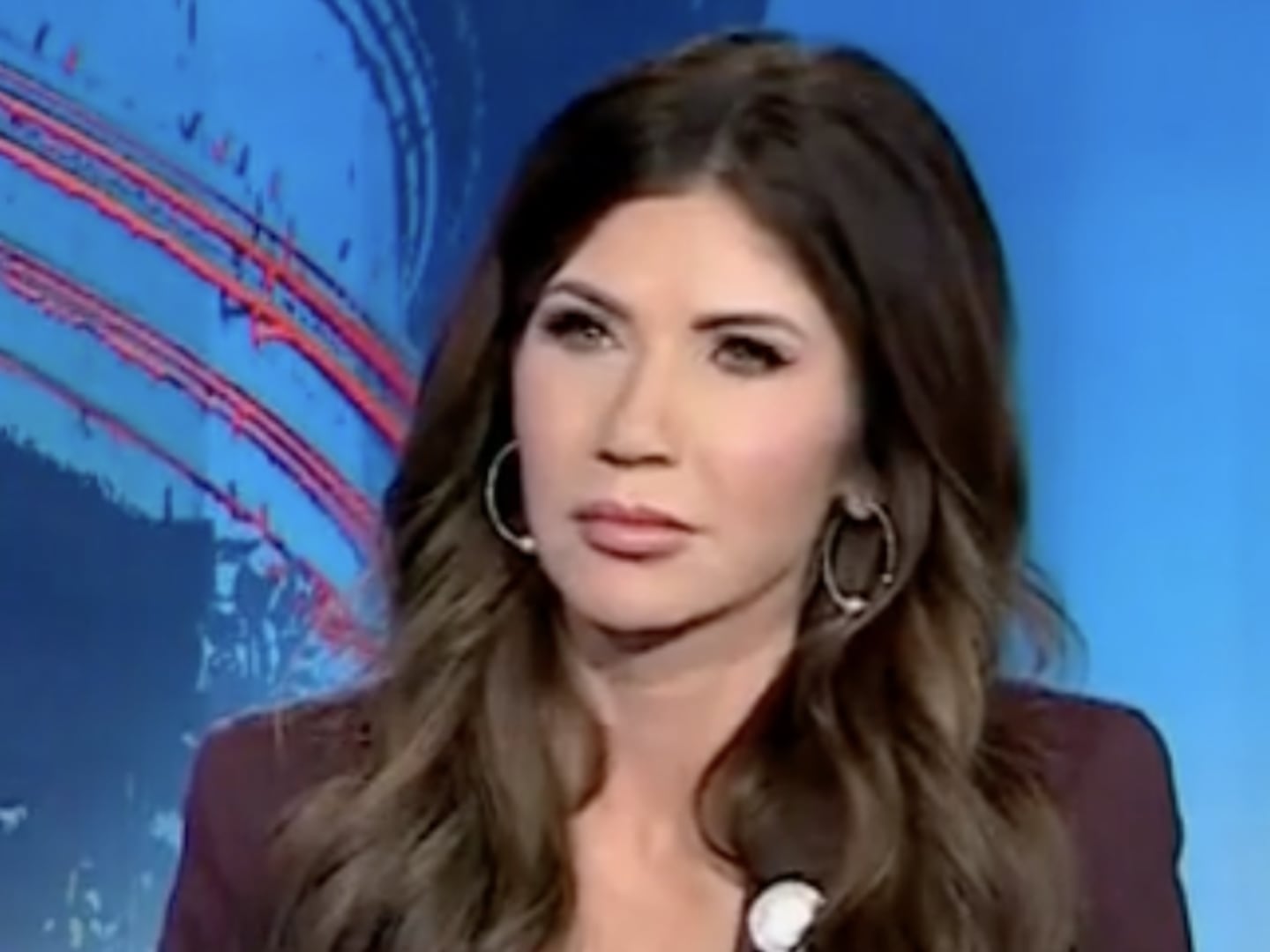I’d been living in Vietnam almost two years when an old friend emailed that he’d be in town. The visit would be short; only one night in Ho Chi Minh City where President Barack Obama, who my friend worked for, would be holding several events.
It was May, 2016. Ho Chi Minh City, which everyone still called Saigon, was hot and muggy. Days before the President’s arrival, the city started to transform. Streets downtown were lined with sawhorses and metal barricades. Cleaning crews wearing orange jumpsuits and carrying bamboo brooms worked overtime, shuffling up and down the crowded sidewalks. Elaborate neon lights were draped above the busy central thoroughfare of Le Duan. Commuters on their motorbikes found random streets blocked by the police—contingency preparations, apparently, for the President’s visit.
By the time Air Force One landed at Ton Son Nhat, Saigon felt primed for its moment. Crowds lined the streets around the President’s hotel and in front of the embassy. Everyone—students, office workers, street vendors, grandmothers—wanted a glimpse of Obama. They said his name with the flat monotone that Vietnamese speakers use when saying a word that doesn’t contain diacritics, the last syllable drawn out so that it sounded like “Obam-aaah!” People in the crowd waved little Vietnamese and American flags, a sight that was kind of amazing in itself considering that this was right around the corner from the War Remnants Museum, formerly called the Exhibition House for U.S. and Puppet Crimes.
The White House entourage had a packed schedule of events, but my friend and I made plans to meet up later that night at a restaurant around the corner from the hotel where they were staying. He showed up accompanied by other members of the White House team.
“Seems like that crowd’s going to be out there all night,” one of my friend’s colleagues said as we all sat down on small plastic chairs arranged around an Inox folding table, dining in typical Saigon street-side style. He was referring to the throngs of Vietnamese still lining the barricades in front of the hotel, waving flags, holding signs and smartphones, hoping to get a glimpse of the President, even though he’d clearly clocked out for the day hours earlier.
“I guess the Vietnamese really love Obama,” I said.
“Dude,” my friend said, “it’s like this everywhere.”
We ordered plates of stir-fried noodles and a round of beers. My friend and the rest of the White House team seemed a little tired, but they were relaxed and cheerful. This—a hectic day in a foreign city—was nothing new for them. They had, quite literally, been all around the world with the president—Turkey, Thailand, Brazil, France, Columbia, Burma, Kenya. The guy sitting across from me talked about hours spent playing Hearts with the President on Air Force One and my friend told stories about the trip to South Africa for Nelson Mandela’s funeral when the Secret Service had urged the President not to go on stage and give his prepared eulogy because the venue wasn’t secure (Obama went ahead and gave the eulogy).
The next day, my girlfriend and I attended the President’s last event in Vietnam, a town hall with the Young Southeast Asian Leaders Initiative at a fancy Saigon hotel. For over an hour Obama spoke on the subjects of personal ambition, grooming future leaders, and the importance of global cooperation in solving the world’s most trenchant problems.
When your audience is a group of non-native speakers of English it can be tough to hold everyone’s attention. (I knew this well enough after two years teaching in Saigon). But the crowd of Vietnamese young people hung onto the President’s every word. It seemed as if they would have been happy to listen to him all day.
Near the end of the event—right after a rapper in the crowd stood up and dropped an impromptu verse in Tieng Viet at the President’s urging—my friend came to find us.
“We’re gonna do some snaps,” he whispered, using the insider term for personal pictures with the President. Before we could even try to object, he was ushering us into a private area, past a secret service guy who did a cursory check on our messenger bags, then down a narrow hallway and into a back room.
“Wait here,” my friend said. Then he whispered something into the lapel of his suit jacket and left.
Somewhere underneath the navy power suit and the earpiece was my old buddy from high school, the one I’d run around Chicago with causing unoriginal teenage havoc.
But for the moment this all seemed completely bizarre.
The windowless room we’d been deposited in felt like something out of a David Lynch movie: the ceilings were too tall, the walls too narrow, and the carpet too plush, as if it might swallow you whole. The room was empty except for a round table and, in the far corner, two flags—one Vietnamese, one American—arranged in the deferential bow posture of international flag-friendship.
Soon we were joined by a young Vietnamese couple and an American woman. They took some selfies in front of the flags, but nobody spoke. We all stood there in anxious silence, waiting.
Then suddenly, he was there, hovering in the doorway. The President conferred for a moment with an aide, then stepped briskly into the room. He looked taller than I’d expected. His mood seemed cheerful but officious.
The secret service guys gave the President space as he posed for pictures with the Vietnamese couple and the American woman.
Then it was our turn. Someone from the entourage of aides who had been out with us the night before explained briefly who we were.
“Well, get in here!” the President said, waving us over to the flags.
We shook hands and posed for two quick pictures—Snap! Snap!
“Mr. President,” someone called out, “Joe’s writing a novel about Vietnam.”
This snagged the President’s attention.
“Oh, yeah?” He looked at me. Up close you could see a trace of weariness in his face, especially around the eyes. “Is it… about a veteran?” he asked.
“It is,” I said, “and about… Chicago.”
This, unfortunately, was the best I could do for an on-the-spot plot summary.
We chatted for a few seconds more about how long my girlfriend and I had been living in Vietnam. I said it was a vibrant place. The President didn’t miss a beat. “Yeah,” he said. “And I bet it’s pretty cheap too.”
Then they were off—POTUS followed by the Secret Service and the group of aides we’d been out with the night before.
Later that day in class, my students couldn’t believe it when I told them what had happened.
“Really?!” they said, their faces lighting up. “You actually met Obama?!” “That is my dream!” one of my students said, bringing her hands up to her heart and swooning.
During my time in Vietnam other celebrities and western leaders had visited the country—Hillary Clinton, Bill Gates, the Manchester United soccer team—but nobody had come close to eliciting the kind of excitement and, yes, love that accompanied President Obama’s visit.
On the political side, for both the Americans and the Vietnamese, there were certainly things to quibble over: Obama’s silence on recent human rights abuses by the local government; the decision to lift the long-standing embargo on U.S. arms sales; the continued inability of U.S. officials to honestly atone for the sins of the war. These were the issues the activist and political classes would talk about in the wake of the visit.
But on the street, the focus was strictly on the emotion of the moment.
An Instagram video shot by then White House photographer Pete Souza captured the atmosphere perfectly. In the clip, Souza trains his camera on the crowd lining the streets as Obama’s motorcade zooms past. After a few seconds the video lurches into slow-mo; we see every person in the crowd—old, young, men, women, children, office workers, street vendors, students—react with what can only be called pure joy as they catch a glimpse of President Obama zipping past behind the motorcade’s bullet proof glass.
Cynics might write this off as a saccharine side-note to the real work of international diplomacy. But they ignore the overwhelming PR component of that highest of offices—the fact that for most of the world, the American president is defined not by politics but by personality.
It’s not exactly surprising that the outpouring of love I saw the Vietnamese show President Obama was largely missing from President Trump’s first trip abroad. On the contrary, thousands showed up for “Trump Not Welcome” marches in Europe this week.
“Obama’s reputation of being a kind and compassionate man resonated with the Vietnamese people,” Hoang, one of my former students, explained when I checked in with him a few weeks ago. “So far, Trump doesn’t give off a friendly aura like Obama.”
No matter who holds the office, the American presidency remains a symbol of power, wealth, and military strength. Those broad strokes remain pretty much constant. It’s the individual who fills in the rest, who determines whether he or she will be seen as a symbol of hope and encouragement—a person who spreads good vibes, as we might say here in Southern California—or a symbol of anger and crabbed fear.
In an early interview, ABC’s David Muir asked President Trump if he thought the so-called Muslim Ban might “cause more anger” among the people of the world.
“David, David,” the President responded. “I mean, I know you’re a sophisticated guy. The world is a mess. The world is as angry as it gets. What? You think this is gonna cause a little more anger? The world is an angry place.”
Americans who have lived abroad understand how destructive and alienating a statement like this can be. We feel it when people ask us “Where are you from?” and we see their faces either light up with excitement—“Obam-aaah!”—or turn away with contempt. Or worse—straight up disgust.
“Sometimes our politics doesn’t express the goodness of the people,” President Obama said at one point during that town hall event in Saigon. “But usually the voters make good decisions. Things are going to be okay. I promise.”
Everyone laughed and then applauded. For the moment we were all reassured.
Joseph Babcock is the author of the Kindle Single The King of Big Air. He teaches writing at UC San Diego.






